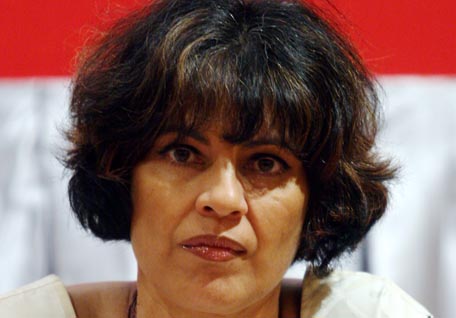
Bruce Hill
MELBOURNE: Fiji human rights activist Imrana Jalal has left the country permanently. The former advisor to the Pacific Regional Rights Resource team, who is also a
member of the International Commission of Jurists has relocated permanently to the Philippines, where she will work for the Asian Development Bank.
The Fiji Independent Commission Against Corruption had brought charges against Jalal and her husband for alleged minor misdemeanours relating to Suva City Council food regulations but a judge threw the case out. It had been alleged that the prosecution was politically motivated because Jalal has been a critic of the coup-installed military government.
Amnesty International New Zealand CEO Patrick Holmes says that it is a great shame that someone of her calibre has been forced to leave her country for good.
Presenter: Bruce Hill
Speaker: Amnesty International New Zealand CEO Patrick Holmes
HOLMES: I think it's a great shame, she's a very brave human rights defender and I think it's a great shame for her, it's a great shame for Fiji and the people in Fiji that she has supported long term, and it's a great shame for the Pacific as well. And my fear is that this will send a clear message to other people to keep their heads down, and I think that's a very worrying move.
HILL: Why do you think that she's been forced in her mind to leave Fiji?
HOLMES: Well I think what we saw with her prosecution was the end game of a long period of persecution, and the final point of a very brutal bullying regime tactic against her. And credit to her, she's stuck it out for a long time, she's never been afraid of speaking out, but ultimately one person can only do so much and she's got family and life to get on with, and it's a great shame but she's been forced to leave the country of these spurious claims that were laid against her.
HILL: But in fact the court system seems to have worked in her favour, the judge threw those charges out, so she won didn't she?
HOLMES: She did win, they were all thrown out and I think that was largely down to the bravery of one judge, and to some extent the eyes of the world, the eyes of the Pacific were turned on Fiji and were watching the outcome of this case. So thankfully the judge took all that into account and made a very brave decision. But it does make you wonder how people who are less in the public profile, kind of ordinary Fijians would be treated in the legal system, and my fear is that they maybe wouldn't get such an outcome. But nevertheless, yes she won, she was absolutely vindicated, she was proven innocent of all charges, but ultimately she's had to pay a very high price for her innocence which is to leave her country?
HILL: Well, she's obviously got a massive legal bill?
HOLMES: She has, I don't know the exact details but I know from speaking to her it's been fairly ruinous, and there are now debts around the legal debt and she had very good legal advice, but of course with the best will in the world not all of this comes free. So she's now left with a serious legal bill to face.
HILL: Some governments around the world have been accused of engaging in what's called lawfare, bringing allegedly spurious suits against people they don't like, not necessarily to win the case, but simply to destroy them financially with legal bills?
HOLMES: Well I think that's been a clear tactic here. The charges appear to have been completely trumped up, but the government because it's got legal might, it's got financial might relatively on its side, it can afford to bring these cases and stall the cases and make them drag out for a long time. And so it's a war of attrition really, you put enough pressure on people, as we've seem with Imrana Jalal and you put enough pressure on them, it costs them such a lot of money that they're forced to their knees, and they're forced to take fairly drastic action, which is leaving her country. And I think that was I believe clearly the tactic that they were using. They knew that if they leaned on her heavily enough and long enough that she would be unable to keep this going just because of financial pressure. I think her going is both a loss to Fiji, she was a great spokesman for her people, and a clear clarion voice for the human rights defenders in Fiji, but also for the Pacific, because what we see in Fiji, a lot of the smaller Pacific Island nations look at Fiji and they think well, if it's ok for Fiji it's ok for us. So my concern would be that we see happening in Fiji right now with these bullying tactics by the Fijian government, other small nations might think well, that's ok, they got away with it, we can do the same too. So I think it's a great shame that she's leaving the region.



